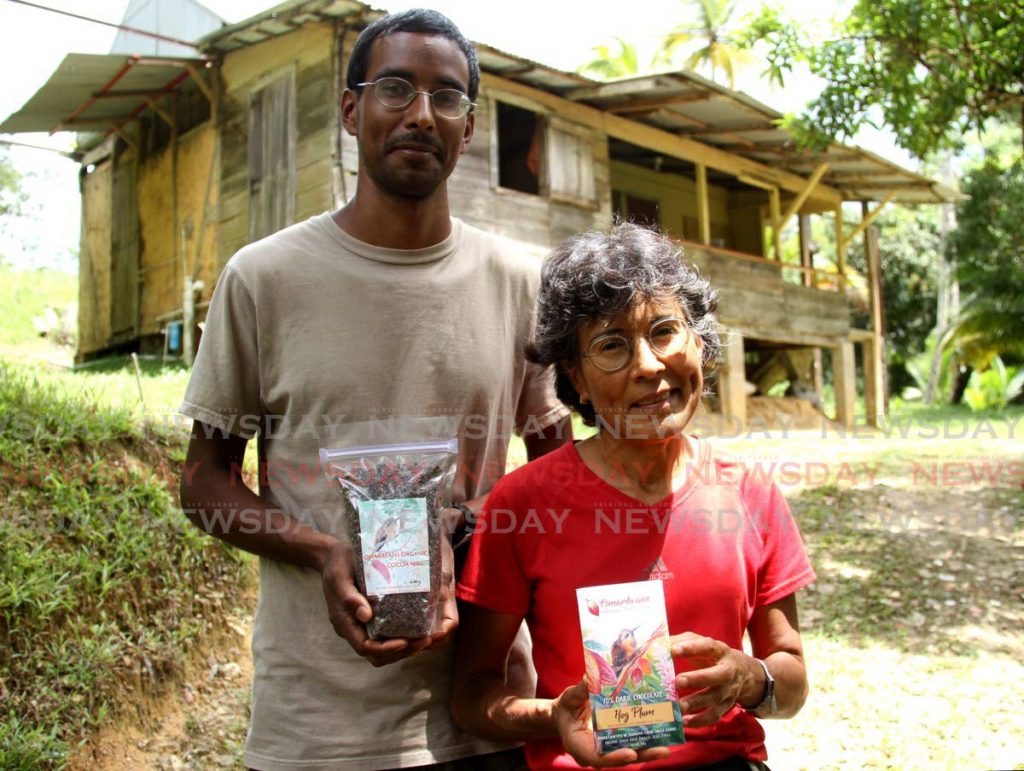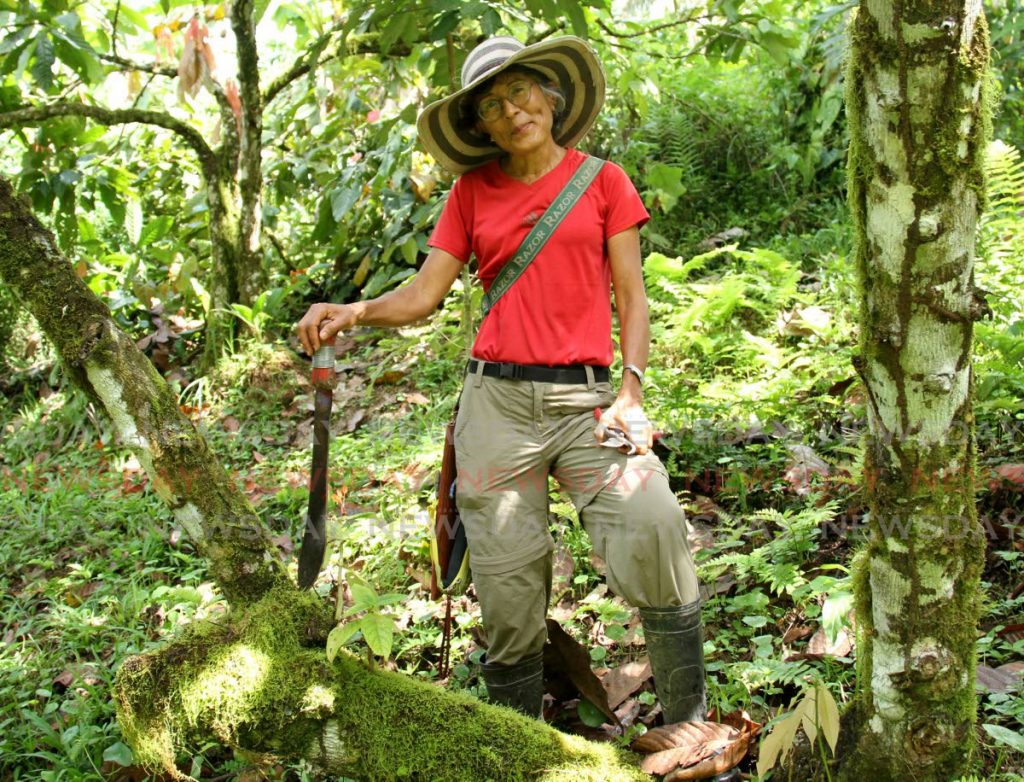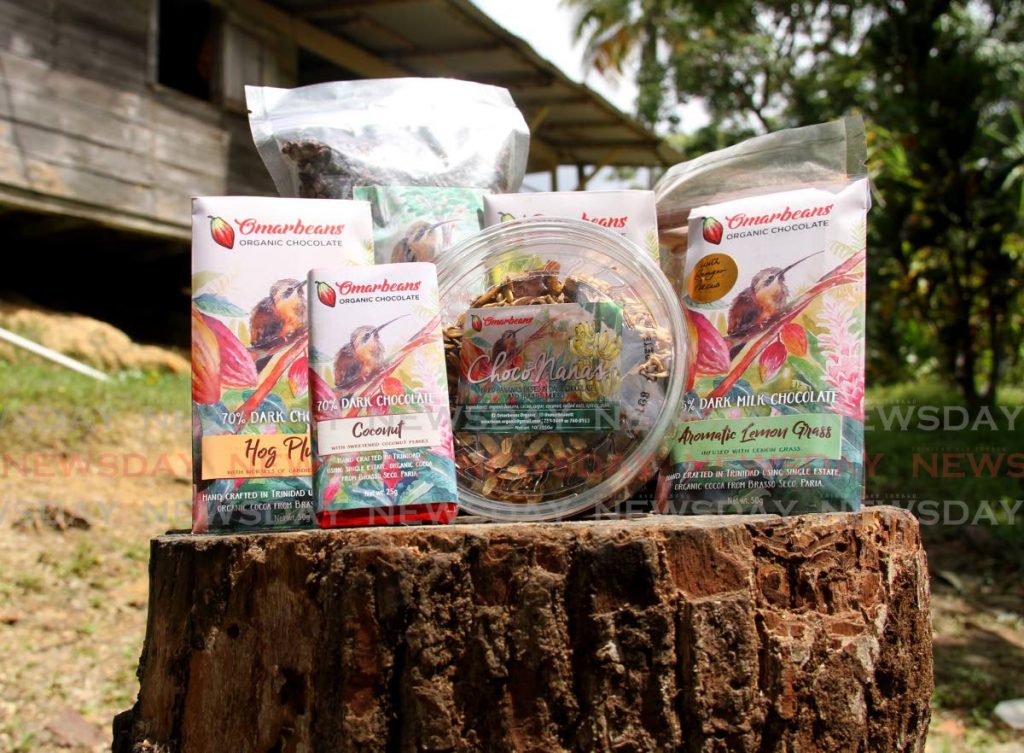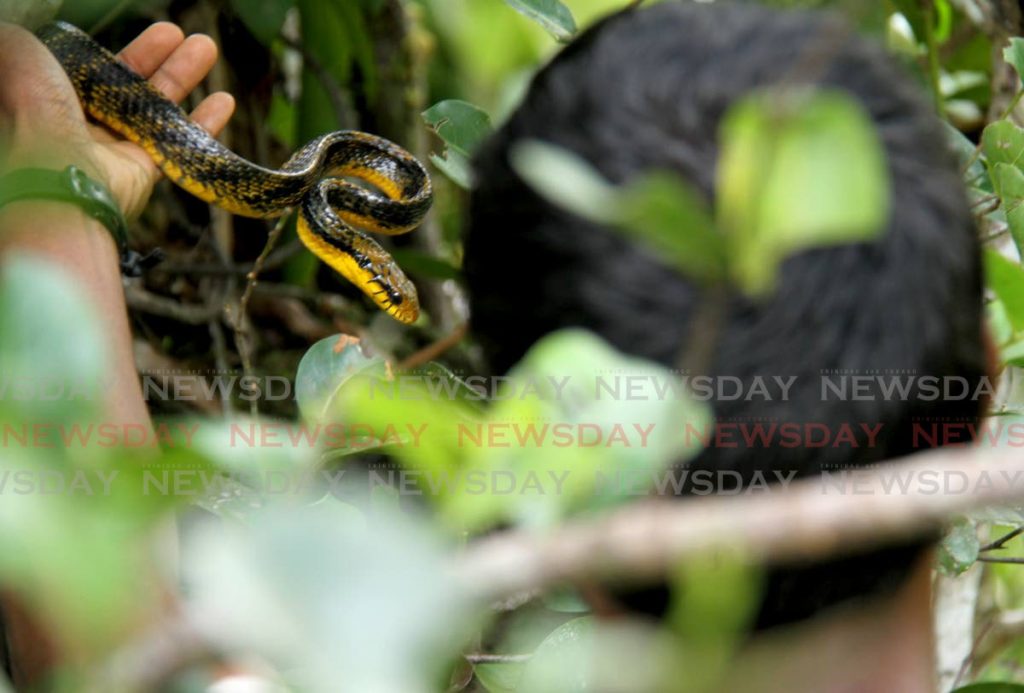Omardeens revive estate in Brasso Seco: For the love of cocoa

The pristine rainforests of Brasso Seco, Paria are home to breathtaking natural beauty such as the crystal-clear Madamas Falls, the double river, Paria Falls and many spectacular hiking trails.
Now they can also boast of producing the best cocoa beans in the country.
The community is synonymous with agriculture, as the long stretches across the valleys of the Northern Range also produce some of the best christophene locally.
The tiny village, with just about 300 people, depends on the land to live.
Established in the early 1900s as cocoa and coffee plantation, many of the estates were abandoned after the reign of King Cocoa ended.
But the cool temperature, abundant natural springs and wide variety of indigenous flora and fauna make it the perfect roost to cultivate cocoa on the fertile hillsides.
After an almost 90-minute drive from the Eastern Main Road in Arima, along a mostly narrow, winding, potholed but scenic drive, lies the estate of this year's National Cocoa Awards winner.
Dr Stephanie Omardeen and her son Javed are modest over their victory, suggesting it was a stroke of luck which led them to emerge on top from a field of 36 entrants last month.
Their specially fermented flavourful beans, along with the other five category winners, are now going to be judged at the 2021 global Cocoa of Excellence competition in Paris, France in October.

Their dark chocolate bars, cocoa powder and other products, sold under the Omarbeans Organic brand, can be found in local gourmet shops in Valpark and Hotel Normandie, St Ann's. but most of their customers buy from them directly.
Omardeen, 60, a general practitioner who still has a small practice, and her husband, Dr Feroze Omardeen, a cardiologist at Westshore Medical, invested in the 15-acre estate only three years ago. Their eldest son owns another 20-acre estate in Brasso Seco, which they have developed over the last ten years.
Omardeen stands not much taller than five feet, but, wearing a backpack, and trusty cutlass on her hip, she is the livewire on the estate.
She says she is still trying to balance her medical practice with work on the estate.
"I love being up here because it is so quiet and peaceful. I actually love physical work, it is right up my alley."
You can see she feels at home in nature as she briskly weaves through the canopy of cocoa trees, surrounded by flowering pink anthuriums, blood-red heliconias and fuchsia torches.
"It was always my dream to have a farm, to climb trees, to prune trees, to plant things, and this is what is happening now."
As a doctor, she knows all too well the dangers of unhealthy foods and of sugar, and hopes one day people will shy away from fast foods and develop tastes for healthier, home-grown food.
About three decades ago, the Omardeens returned to Trinidad from living in both the United Kingdom and Jamaica, and their passion and love for the outdoors led them to Brasso Seco, where they spent countless weekends hiking and exploring the nature trails.
She describes her husband and herself as naturalists who spent considerable time looking at birds, trees and hiking.
"We used to go rain or shine. We used to be up here and different parts of Trinidad, but especially here. We liked Brasso Seco, hiking, walking to the waterfalls. We just loved it, we loved the bush, we loved the water. We like healthy foods."
Omardeen, who was born in Belize, says she only recently became a naturalised citizen of TT and recalled in her younger days she travelled to the remote areas of her homeland and learning the life of the indigenous people.

"Belize is the home of cocoa. The Amerindians used cocoa as money, and when they went long distances they would carry cocoa pods to sustain them, because it is such a complete meal – full of fats, full of nutrients. So I always liked chocolate. When we got the opportunity to buy this estate, it came natural," she said during in interview last Thursday.
Omardeen says she wants to honour the estate's previous owner Winston Romany, who inherited it from his father, and wanted the new owner to love the land as he and his generation did.
A significant portion of the estate is not cultivated, and after taking it over the Omardeens had to re-establish the cocoa trees, which had been abandoned for some time.
They purposely do not clear the undergrowth thoroughly and hope soon to be organically certified, which in turn will allow them to charge a little more for their products.
Throughout the estate they have planted pigeon peas and legumes and pois doux (padoo) varieties from around the world as nitrogen fixtures.
"The old people knew what to do. Things like primrose, mangoes, they bring up micro-nutrients from the lower horizons of the soil and we do that. We deliberately plant things that will augment the soil so we don't have to add fertilisers."

The Omardeens want to encourage butterflies, bees and birds to live on their estate, and Javed has established an apiary on his farm.
They do not use any insecticides to protect the bees and other insects. Even as she brushed off ants which crawled under her shirt and pants, Omardeen admits she gets "bitten quite a lot but it comes with the job."
The Omardeens have a voracious appetite for absorbing best practices from experts, literature and experienced farmers and chocolatiers. They reach out for advice whenever they are stumped.
Their intention was to get the Brasso Seco cluster of cocoa farmers to enter the National Cocoa Awards, but many other farmers were preoccupied in the weeks leading up to Christmas.
The Cocoa Development Company's (CDC) extension officer for Brasso Seco, Matthew Escalante, encouraged them to enter and they took a chance.
Their cocoa pods came in late because of the rains, and they did not have a proper fermentation box at the start, using styrofoam coolers instead. They believe the cost of equipment can be subsided to help more farmers make value-added products from their produce and become certified.
By the time they harvested the second batch and began using a proper fermentation box, they thought their beans were good enough to stand up in the competition and got the approval from the extension officer and another close friend.
"I did not want Brasso Seco to place last. It was just for the fun of it. I would have really liked Brasso Seco to be in the top 20," Omardeen said, but emerging as top producer came as a shock.
She believes the national competition is an incentive to farmers, especially those who are making value-added products, as they can all improve their skills in fermentation.

One of her invaluable resources is the advice of cocoa scientist Sarah Bharath, who helps farmers and chocolatiers in the region and other countries around the world.
"The CDC really tries to help us, and there are other people, like Sarah Bharath, who has done a tremendous job in training people to ferment and is still doing that. We are lucky in Trinidad to have these resource people."
She said Bharath has been working behind the scenes and does a lot of pro-bono work with farmers because of her love and passion for cocoa and chocolate.
The Omardeens' venture into making chocolate includes a fusion of fruits and spices all grown on their estate. You can find a mixture of tonca bean, nutmeg, guava, hog plum, coconut, clove, cinnamon and honey in their products.
They do not make chocolates with less than 65 per cent raw products and guarantee that local chocolate is healthier than the big brand names imported from international suppliers.
They are experimenting with dried silk and sequoia bananas, dipped in dark chocolate and coated with rolled oats and other spices, called Choconanas – a delightful snack.
They also plan on infusing their products in bread for the market soon. The ginger-infused cocoa tea is delectable and soothing to the stomach.
The Omardeens are partnering with another chocolatier, Mariella Pierre Peschier, from Arima, and 2019 cocoa award-winners Martin and Jacqueline Matthew of Mundo Nuevo, Talparo, to collaborate and pool resources to further develop their products – and maybe win more awards.

Comments
"Omardeens revive estate in Brasso Seco: For the love of cocoa"